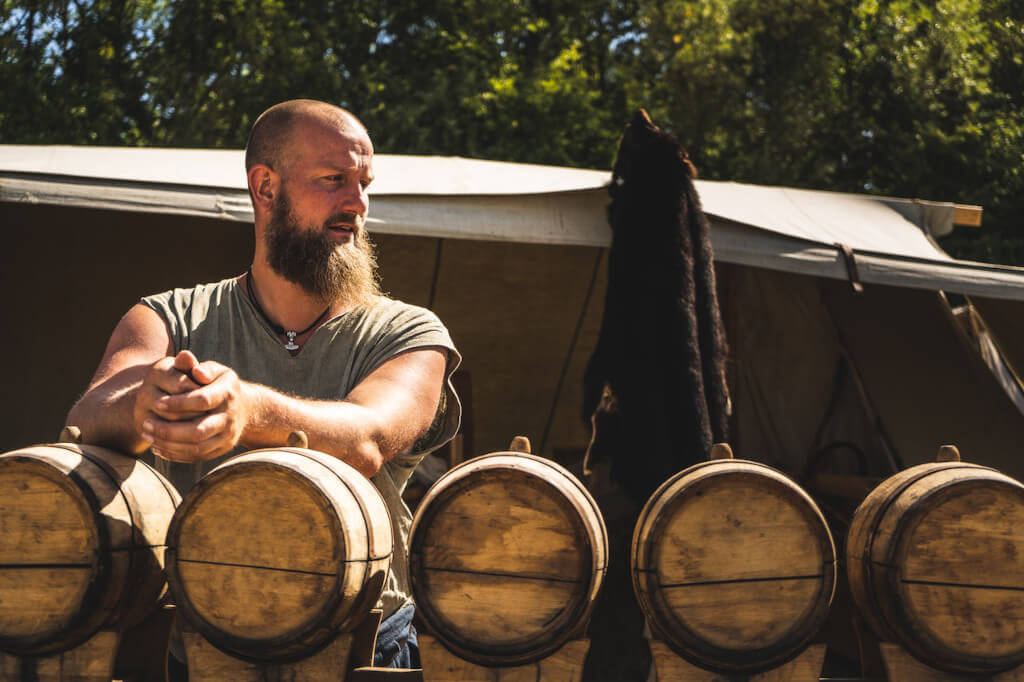As whisky aficionados, we often embark on sensory journeys, letting the aroma, flavor, and finish of our beloved spirits transport us to another time and place. But have we ever paused to ponder the story behind every droplet in our glass? Particularly, how it affects our environment? Welcome to the fascinating realm of sustainable spirits, where craftsmanship meets conscientious environmental stewardship.
Importance of Sustainability in the Spirits Industry
Whiskey’s magic is intertwined with nature. From the water that caresses the grains to the wooden barrels cradling the spirit, nature plays a critical role. Consequently, ensuring sustainable practices is crucial for preserving not just our environment, but also the heritage and future of whisky production.
Water wastage, energy inefficiencies, and irresponsible grain sourcing can jeopardize the delicate ecosystems that give birth to our beloved drams. Furthermore, as climate change looms, distilleries that do not embrace sustainability may soon find their traditional flavor profiles altered, as weather patterns and natural resources shift.
Profile of Organic and Eco-Friendly Distilleries
Historically, many distilleries operated on a small scale, naturally integrating with their environment. With the commercialization of the industry, however, many shifted away from these eco-friendly methods. Fortunately, a resurgence in organic and sustainable distillation has begun.
Take, for instance, BenRiach in Scotland, which harnesses biomass power, or Koval in Chicago, pioneering organic grain-to-bottle production. Across the Atlantic, Ireland’s Waterford Distillery follows biodynamic farming, while Sweden’s Mackmyra utilizes gravity in its eight-floor distillation process, minimizing energy usage.
How Sustainable Practices Affect the Taste and Quality of the Spirit
There’s an age-old saying amongst whisky enthusiasts – “You can taste the care.” Sustainable practices, focusing on organic ingredients and eco-friendly processes, often result in a cleaner, more authentic spirit.
Organic grains, free from pesticides and synthetic fertilizers, offer a truer representation of their natural flavor. This purity transcends the distillation process, manifesting in spirits with crisper, more distinct profiles. Likewise, distilleries that use natural water sources untouched by pollutants produce spirits that reflect the pristine nature of their origins.
Consumer Trends Towards Sustainable Spirits
Modern consumers, especially the millennials and Gen-Z, are increasingly conscious of their environmental footprint. This trend translates to the spirits industry as well. According to a recent study, nearly 70% of consumers are willing to pay more for sustainable and ethically produced products, including spirits.
Brands have taken note. From eco-friendly packaging to carbon-neutral certifications, distilleries are echoing the sentiments of a new generation of drinkers who prioritize planet health as much as palate pleasure.
As the ethos of sustainability permeates the spirits industry, discerning consumers have given rise to innovative trends that underscore a harmonious balance between enjoyment and environmental responsibility. These trends, emerging both from the USA and Europe, offer not only a glimpse into the current zeitgeist of the industry but also hint at its promising, eco-conscious future. Let’s explore some of these pivotal shifts that are reshaping the way we think about and consume spirits.
- Eco-Packaging is a Must: Just as we noted in the previous article, eco-friendly packaging is making significant inroads in the spirits industry. Consumers are more likely to be drawn to products with recycled or recyclable packaging, which minimizes their carbon footprint post-production. For instance, Seedlip, a non-alcoholic spirit brand, uses bottles made from 100% recycled PET plastic. Moreover, several European distilleries are exploring alternatives to traditional cork, seeking sustainable replacements that don’t compromise quality.
- Zero Waste Distilleries: Waste reduction is a pressing concern. Brands like Arbikie Distillery in Scotland are at the forefront, championing a field-to-bottle approach where they grow their own grains, distill, and then reuse waste to fertilize fields. Their closed-loop system epitomizes this trend, creating spirits that reflect an earnest commitment to sustainability.
- Carbon Neutrality is Key: Carbon-neutral certifications, as highlighted previously, are a clear indication of a brand’s dedication to eco-friendliness. In the USA, Breckenridge Distillery in Colorado is pioneering carbon neutrality, offsetting their emissions by funding renewable energy projects. Across the ocean, The English Whisky Co. has made strides in reducing their carbon footprint, aiming for full carbon neutrality.
- Locally-Sourced Ingredients: A trend resonating deeply with consumers is the emphasis on local sourcing. By using local ingredients, distilleries reduce transportation emissions and support community farmers. St. George Spirits in California champions this approach, using local botanicals and fruits to craft their distinct spirits. Similarly, many European craft distilleries are reviving heirloom grain varieties, boosting local biodiversity.
- Water Conservation Initiatives: Water is the lifeblood of the spirits industry. In regions facing water scarcity, distilleries are innovating ways to conserve and recycle water. The American brand WhistlePig, for instance, employs a closed-loop water system. Europe’s Bruichladdich Distillery has its own on-site wastewater treatment plant, exemplifying a conscientious approach to water usage.
- Educational Initiatives and Workshops: Knowledge is power. Recognizing this, many distilleries are hosting workshops and tours focused on sustainability. For example, The Cotswolds Distillery in England provides insights into their sustainable practices, educating visitors about the significance and methods of eco-friendly production.
- Biodynamic Farming and Distillation: Going beyond organic, biodynamic farming follows the lunar calendar and treats the farm as a holistic entity. Europe’s Waterford Distillery embraces this practice, and in the USA, Demeter USA certifies spirits that adhere to biodynamic principles. The spirits resulting from these practices are not only eco-friendly but also possess a unique character, reflective of their harmonious creation process.
Linking back to the previous discourse, as modern consumers become increasingly conscious of their choices and their environmental impact, these trends offer a glimpse into the evolution of the spirits industry. In the dance between tradition and innovation, these practices underscore a promising, green rhythm that’s echoing both in the USA and Europe.
How to Identify and Choose Sustainable Liquors
The world of sustainable spirits might be budding, but it’s flourishing rapidly. So, how can you ensure the spirit you’re sipping on is truly sustainable?
- Certifications: Look for labels like USDA Organic, Biodynamic Certified, or Carbon Neutral on the bottle.
- Transparency: Brands proud of their sustainable practices often detail them on their websites or product labels.
- Eco-packaging: Sustainable spirits often come in recycled or recyclable packaging, minimizing their carbon footprint even after production.
Speaking of transparency and a wide selection, for those keen to explore sustainable and organic spirits, I’d strongly recommend visiting WhiskeyD’s website. With a vast variety of eco-conscious products, it’s a treasure trove for those of us wanting our drink to do good while tasting great.





